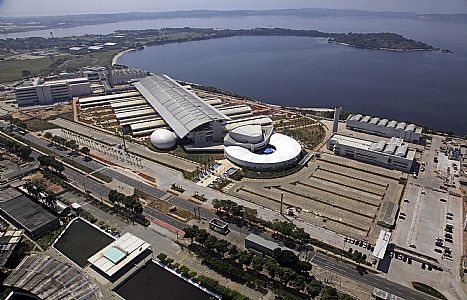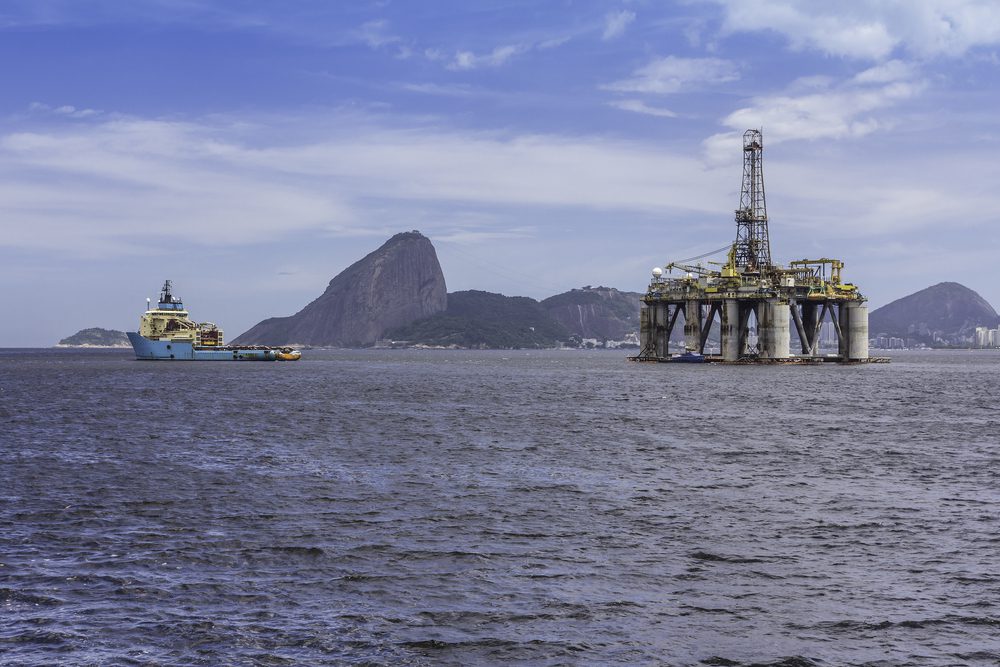RIO DE JANEIRO (Dow Jones)–Brazil’s offshore oil industry could tap $1.1 billion in funding for research and development in 2012 to meet the challenges of developing ultra-deepwater oil fields and the government’s demand for more locally produced goods and services.
“Investments are needed inside the industry to increase companies’ ability to compete,” said Flavia Rezende, technology and development manager for consultants group Bureau Veritas, during a seminar sponsored by industry trade group Brazilian Petroleum Institute, or IBP. “There are a lot of technical demands with the pre-salt. A lot of challenges to overcome,” Rezende said.
Some of the largest oil finds in more than two decades were discovered recently off the coasts of Rio de Janeiro and Sao Paulo, potentially holding as much as 100 billion barrels of crude. But they are located in one of the most hostile and inaccessible environments on earth, lying deep under the Atlantic Ocean seabed beneath a thick layer of salt.
The fields represent a huge technical challenge because of the depths at which the oil reserves are found and their distance from the Brazilian coastline. Research and development will play a key role if the pre-salt fields are to be developed successfully.
Brazil is banking on these pre-salt fields to create a robust oil-field services industry, while also leading to a rebirth of the ship-building sector. New products will need to be developed to overcome the extreme operating environment of the pre-salt, while also increasing the amount of locally produced goods and services to meet stringent targets required by the government.
The government has made funding available to support innovation in the industry, while clauses in concession contracts for large-scale fields require 1% of gross oil production revenue be devoted to research and development projects between local companies and universities.
“Brazil has all of the instruments available for innovation in the [oil and natural gas industries], but they are still poorly communicated,” said Rogerio de Medeiros, technical secretary for the oil and gas industry at a research and development bank in the Ministry of Science, Technology and Innovation known as Finep.
The government will make available about 6 billion Brazilian reais ($3.3 billion) in financing available via Finep in 2012, with about BRL1 billion of that targeting the oil and natural gas industry, Medeiros said. Brazil’s National Petroleum Agency, or ANP, also expects about BRL1.21 billion will be made available via the research-and-development clause in existing concession contracts, according to Analia Martins, the agency’s technology coordinator.
Perhaps the biggest challenge is making sure that companies know the funds are available, while also increasing collaboration between the industry and local universities, said Raimar van den Bylaardt, the IBP’s technology manager.
“There’s a lot of money available, but we lack projects,” Bylaardt said. “We need good projects.”
Ties between the oil industry and Brazilian institutions of higher learning, however, are growing closer.
State-run energy giant Petroleo Brasileiro (PBR, PETR4.BR), or Petrobras, has led the charge by establishing a giant research center near the campus of the Federal University of Rio de Janeiro. About 500 million Brazilian reais ($278 million) in private investment has followed as suppliers such as Schlumberger (SLB), Baker Hughes (BHI), Halliburton (HAL) and others have built or plan facilities in the research park.
Research projects could lead to innovation and new products made in Brazil that could be used in production platforms, drilling rigs and other equipment to explore and produce offshore oil and natural gas, said the ANP’s Martins.
“Research and development is a way to improve [local content],” Martins said.
-By Jeff Fick, Dow Jones Newswires
Editorial Standards · Corrections · About gCaptain

 Join The Club
Join The Club











